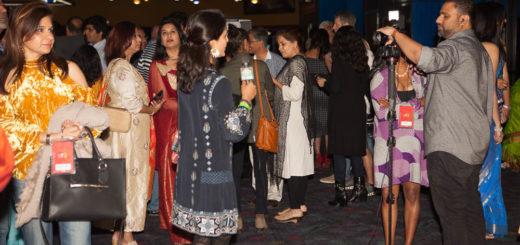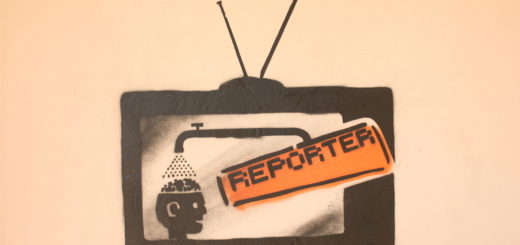Hanks: More women, minorities needed for tech roles on screen
A giant Ferris wheel dominated Congress Avenue during the South by Southwest Film and Interactive Conferences. The neon attraction was promoting a television show about a computer hacker called “Mr. Robot.” The show’s cast includes 1980’s teen heartthrob Christian Slater.
Slater was discussing “Mr. Robot” at the packed SXSW panel on “Coding on Camera: Mr. Robot and Authenticity on TV.” I was at the panel because of my Slater fangirl past.
I was busy taking way too many pictures of Slater when an audience member asked show creator and executive producer Sam Esmail if the choice to put women and actors of color in tech roles in the show was a conscious choice. Answer: It had more to do with available actors, but it was a good thing if it promoted more diversity in technology.
Diversity and access to technology is an important topic. President Barack Obama addressed the ongoing “digital divide” — the gap between those who have easy digital access and those who don’t — during his SXSW keynote. Being lucky enough to have high speed digital access at home, I was able to stream his talk from my sofa, without standing in line or putting on my going-out pants.
After the president spoke, I realized I’d been thinking a lot about technology-related issues.
My niece Elizabeth is in high school and will soon be deciding where to go to college and what to study. Her recent years have included selling enough Girl Scout cookies to go to Europe with her fellow cookie-sellers and doing several projects for fun involving computer programming. She has attended various camps and events for kids interested in science, technology, engineering and mathematics (STEM). She has sometimes been the only girl at a particular camp.
I often thought of Liz while happening into multiple panels on diversity at SXSW. I saw a tech keynote on “Elephant in the Valley” with Megan Smith — the United States’ chief technology officer — discussing women in technology; then I saw a panel with Harvard University Professor Henry Louis Gates Jr. and popular-on-PBS documentary filmmaker Ken Burns discussing current racial tension in America.
My takeaway from these SXSW panels: the substantive issues around diversity and technology matter, but are difficult to solve. Yet the question from that audience member at the “Mr. Robot” panel got me to thinking about media representation.
Research from the Geena Davis Institute on Gender and Media about “Gender Bias Without Borders” shows that, “Men outpace women in on-screen STEM career roles 7-1.” The only mainstream female STEM character I know about is Abby Sciuto, the goth fashion plate, tech genius and basement lab guru from popular television show “NCIS.”
Since not everyone gets to go to South by Southwest and see a powerful women from the White House talking about technology, it’s time to start changing the media perception of people with jobs in STEM.
If advertising directors, video game developers and other cultural influencers start casting more women and minorities in tech roles in their low-budget films, television commercials and print products, it would help jobs in technology seem more accessible. Let’s start changing the real world by changing the default casting of white male actors as lab techs, “IT guys” and tech support.
It’s hard to dream yourself into a technology-oriented future when you don’t see anyone who looks like you doing it on television.
The issue of diversity is important enough that first lady Michelle Obama addressed it during her “Let Girls Learn” keynote panel that opened the South by Southwest Music Conference and Festival.
“If you’ve got a voice at the table, ask: Is there diversity around the table? Are there voices and opinions that don’t sound like yours?” said the first lady near the end of the event.
Fixing the big problems behind who is working in technology in the real world is complicated, but fixing it in the imaginary world should be easy. Changing the casting in movies and television could help people like my niece see a future for someone who looks like her in technology.
Hanks, an Austin writer. She blogs about pop culture at annainaustin.com . Her husband co-heads the podcast crew for SXSW.
PDF of original story aas More women minorities needed for tech
(Archive post added May 5, 2016)
























